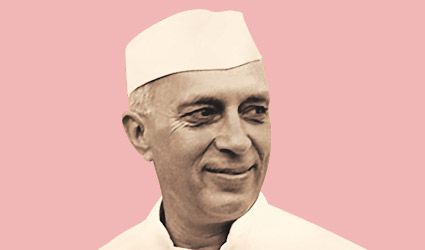Jawaharlal Nehru Letters Controversy: The Sonia Gandhi Connection and Rising Political Disputes
The controversy surrounding Jawaharlal Nehru’s letters has reignited a political debate between the BJP and the Congress, bringing questions of historical transparency and political ownership to the forefront. This issue, which traces back decades, involves the handling, donation, and eventual retrieval of letters written by India’s first Prime Minister, Pandit Jawaharlal Nehru. Here is a detailed account of the matter.
Why Did Sonia Gandhi Take Back the Letters?
The controversy gained fresh momentum when the Prime Ministers’ Museum and Library (PMML) officially requested Rahul Gandhi to return Nehru’s personal letters, which were handed over to Sonia Gandhi in 2008 by the Nehru Memorial Museum and Library (NMML). The PMML has also requested photocopies or digital versions of the letters if the originals cannot be returned.
In 2008, during the UPA government, the letters were sent to Sonia Gandhi under specific conditions. The decision to hand over these letters has since become a topic of political debate, with the BJP questioning why the Congress is reluctant to make these letters public.
The Genesis of the Controversy
The Nehru letters were originally part of the Jawaharlal Nehru Memorial Fund, which was managed by an heir of the Nehru family. Following Indira Gandhi’s legal ownership of the fund in 1971, she began donating Nehru’s letters to the NMML. However, confidentiality clauses ensured that the contents of these letters would not be disclosed without the family’s consent.
In 1988, after Sonia Gandhi assumed control of the Nehru Memorial Fund following Indira Gandhi’s death, she donated additional documents related to Nehru. She imposed strict conditions, including the requirement of her written consent and government approval for any public disclosure of these letters.
By 1992, Sonia Gandhi informed the NMML that these letters contained both official records and personal correspondence, necessitating special permission for their disclosure. As a result, the letters have remained confidential for decades.
What is Special About These Letters?
The letters of Pandit Jawaharlal Nehru are considered historically significant, containing correspondence with some of the most prominent figures of his era. These include:
- Edwina Mountbatten, wife of Lord Mountbatten
- Albert Einstein, the renowned physicist
- Jayaprakash Narayan, an influential socialist leader
- Padmaja Naidu, prominent freedom fighter and governor
- Vijay Lakshmi Pandit, Nehru’s sister and India’s first female diplomat
- Aruna Asaf Ali, a key figure in India’s independence movement
- Babu Jagjivan Ram and Govind Vallabh Pant, prominent political leaders
The letters also highlight Nehru’s personal and professional life, making them invaluable for historical and scholarly research.
How Did the Letters Reach Sonia Gandhi?
In 2008, Sonia Gandhi initiated efforts to organize Nehru’s documents. Under her direction, her representative MV Rajan, in collaboration with NMML officials, sorted Nehru’s official and personal documents. Personal letters were separated, packed in 51 cartons, and sent to Sonia Gandhi on May 5, 2008.
The transfer occurred under the UPA government, raising questions about the timing and intent behind moving these historically significant documents into private custody.
The BJP’s Allegations and Public Debate
In 2023, the Nehru Memorial Museum and Library was renamed the Prime Ministers’ Museum and Library (PMML). Following this, the BJP accused the Congress of withholding Nehru’s letters from public scrutiny. The BJP argued that the Congress’s reluctance to release the letters suggests there might be sensitive information in the correspondence that the party does not want the public to know.
The BJP has demanded clarity on the contents of these letters and why they were transferred to Sonia Gandhi in the first place. This has become a rallying point for the BJP, as they accuse the Congress of politicizing Nehru’s legacy.
What’s Next in the Controversy?
In December 2024, PMML member Rizwan Qadri sent a formal letter to Rahul Gandhi, reiterating the demand to return the letters or provide digital/photocopies. A similar request was made earlier in September. The PMML claims these letters are part of India’s heritage and should be preserved and accessible for public research and historical analysis.
